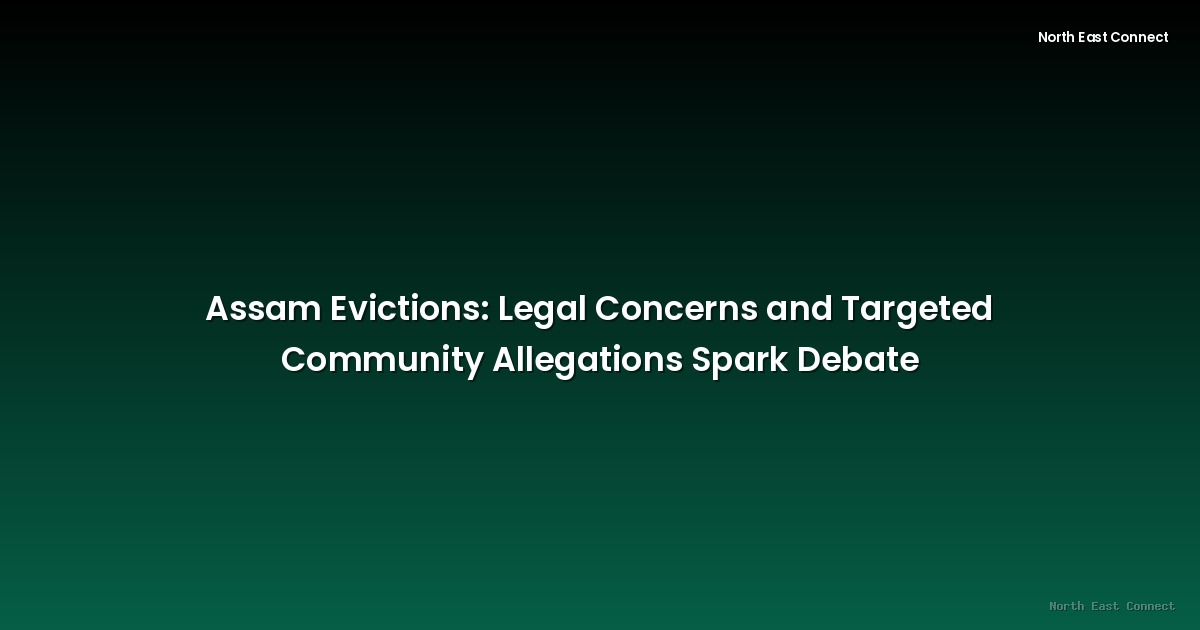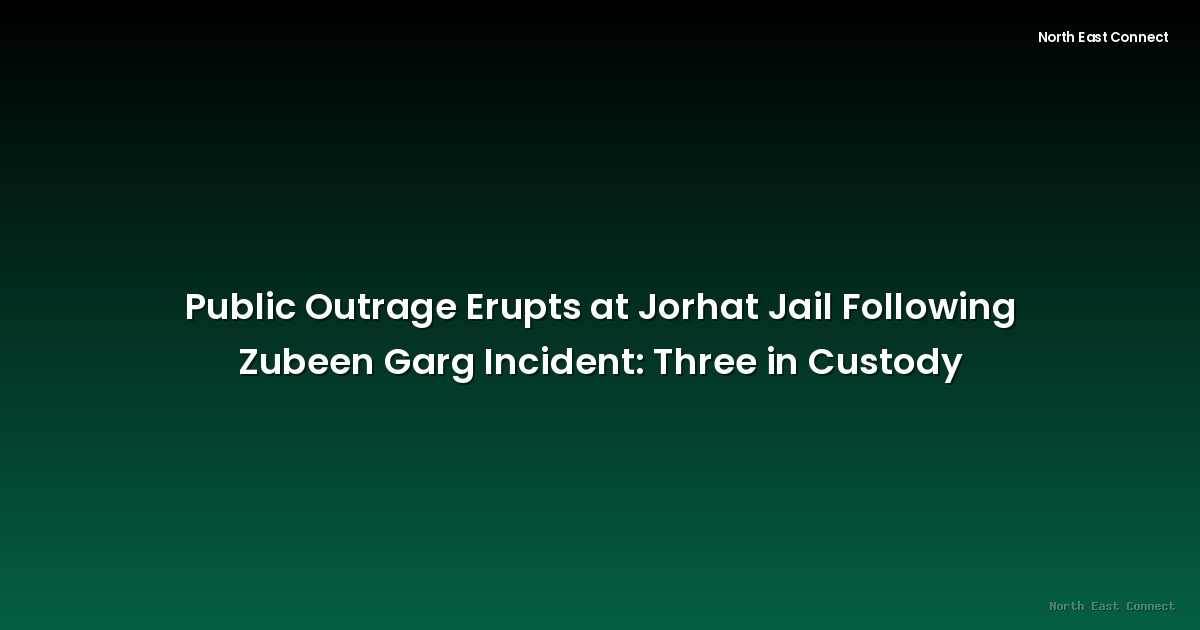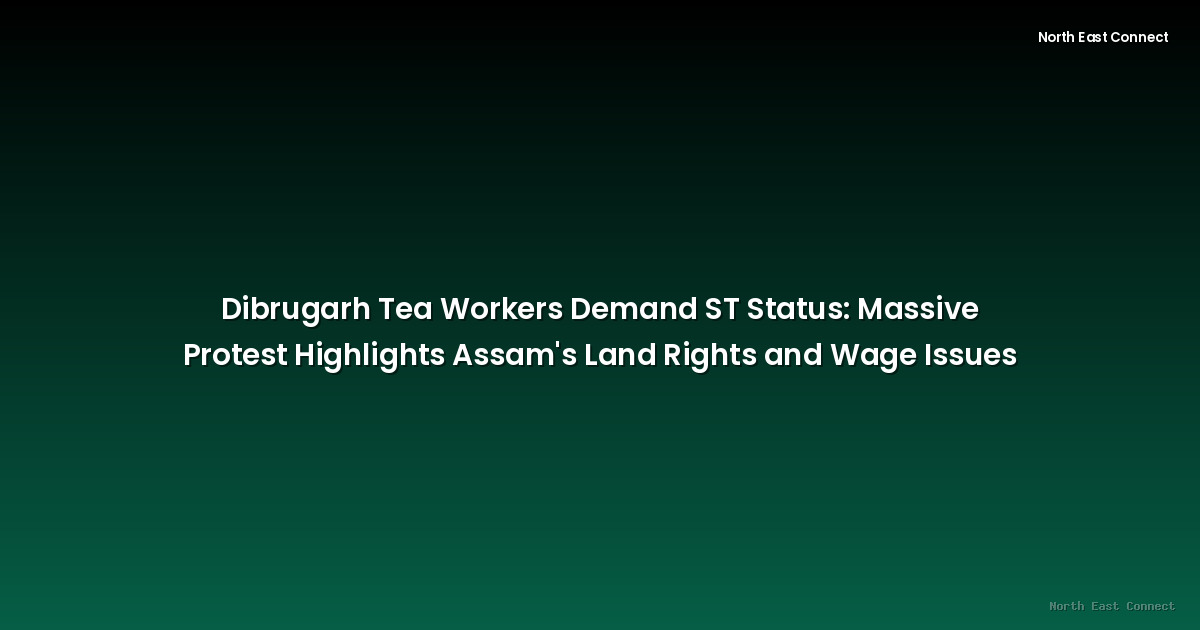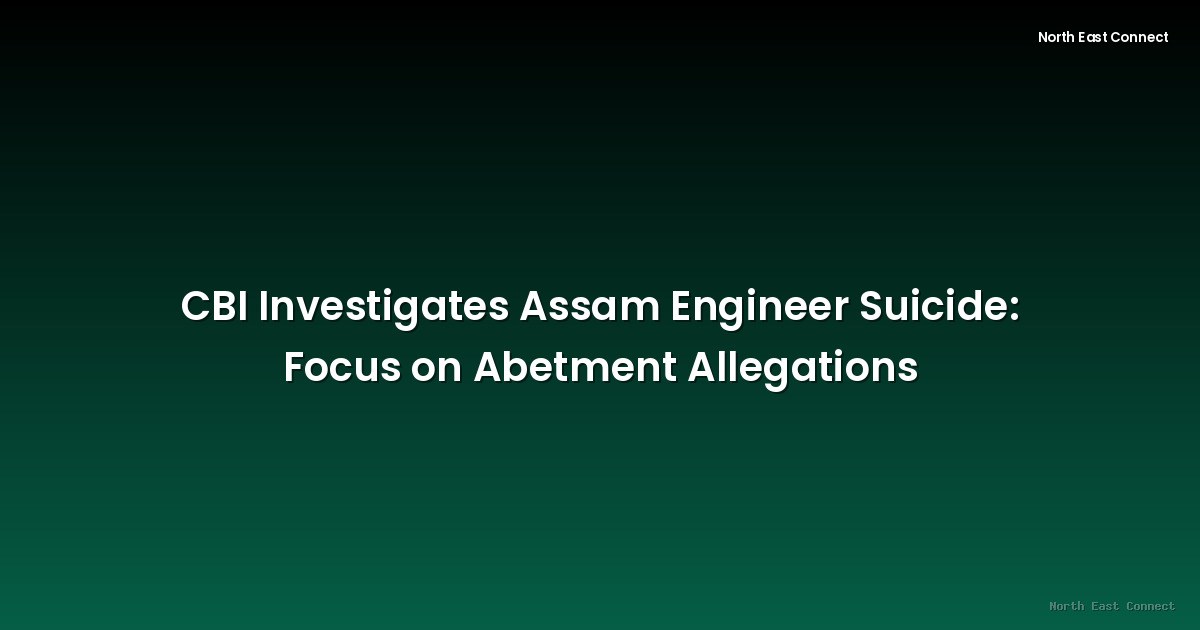2025-08-27 · News
Assam, a state in Northeast India, has recently been the subject of intense scrutiny following a report alleging that ongoing eviction drives are not only illegal but also specifically target a particular community. While the government cites various reasons for the evictions, including encroachment on government land and environmental concerns, the report raises critical questions about the legality and fairness of these actions.
The report, which remains unnamed for journalistic integrity but has been widely circulated, claims that the eviction process lacks due process and fails to adhere to established legal frameworks protecting citizens' rights. This includes alleged insufficient notice periods, a lack of proper compensation for displaced individuals, and the use of excessive force during evictions. These accusations have ignited a public debate surrounding the government's approach to land management and its implications for vulnerable communities.
The alleged targeting of a specific community further exacerbates the concerns. The report suggests a disproportionate impact on this group, raising suspicions of discriminatory practices. This aspect of the situation has drawn criticism from human rights organizations and advocacy groups, who argue that such targeted actions violate fundamental principles of equality and justice.
The government, however, maintains that its actions are justified and necessary to address issues such as illegal occupation of protected lands and the preservation of the environment. Authorities emphasize that evictions are conducted following established legal procedures and that all efforts are made to provide adequate compensation and resettlement options. However, the report’s claims directly contradict these assertions, highlighting a significant disparity between official statements and on-the-ground realities.
The specifics of the community affected remain largely unnamed for safety reasons and to avoid causing further polarization. It is crucial to prioritize the safety and well-being of individuals affected by this complex situation. It is understood that this lack of specific details limits the depth of public understanding, however this is a necessary precaution due to the sensitivity of the topic.
The ongoing debate surrounding the evictions highlights the need for transparent and accountable governance. Independent investigations are crucial to ascertain the veracity of the allegations and ensure that due process is followed in all eviction cases. The lack of transparency regarding the exact number of families affected and the precise reasons for each eviction adds further fuel to the controversy. Open access to information and impartial oversight of the process are essential for building public trust and resolving this critical situation. The situation demands careful consideration of all perspectives to ensure that any future actions respect the rule of law and protect the rights of all citizens.
Further investigations are needed to fully understand the scope of the issue and to determine the appropriate course of action. This includes an independent review of the legal framework governing evictions, an assessment of the compensation and resettlement programs offered to affected individuals, and a comprehensive investigation into allegations of targeting and discriminatory practices.
The long-term consequences of these evictions extend beyond the immediate displacement of individuals and families. They raise significant concerns about social stability, economic development, and the potential for increased social unrest. A just and equitable resolution is essential to prevent further escalation of the conflict and to ensure a peaceful and prosperous future for all communities in Assam.







